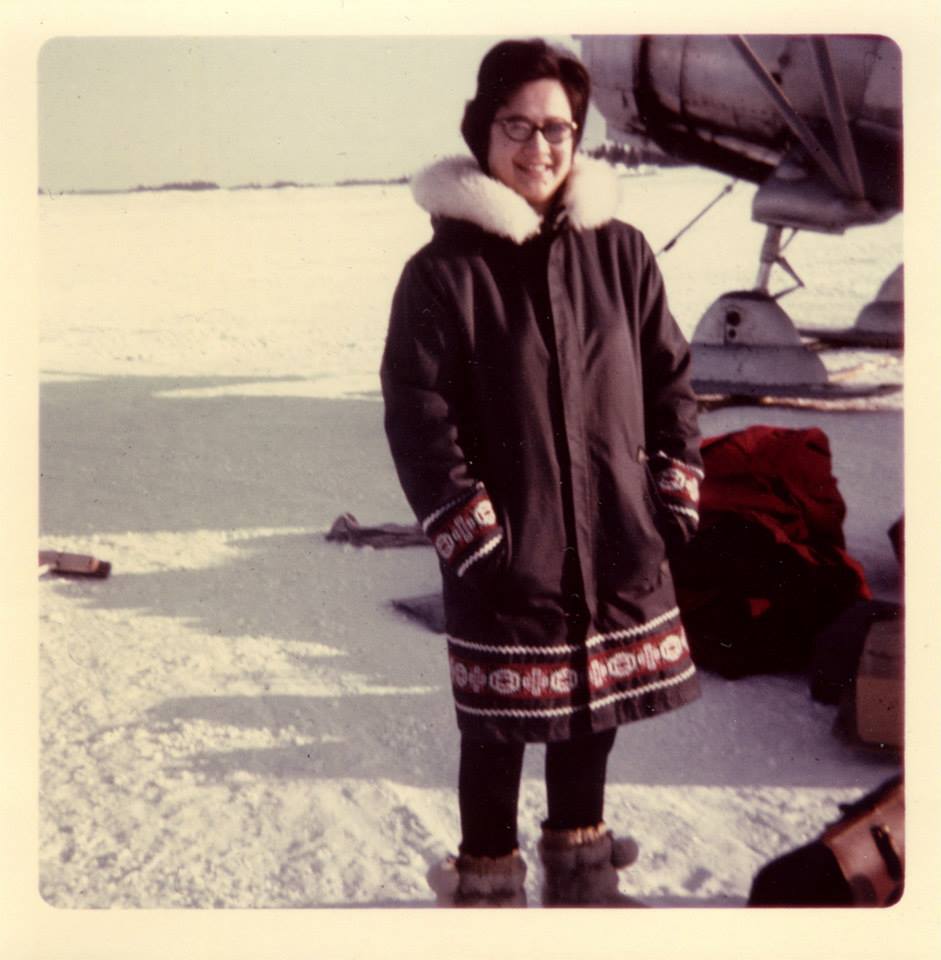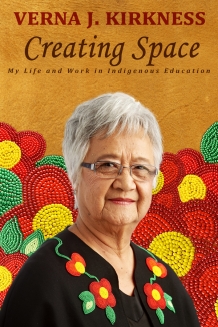
Winter travel – standing by the bush plane in Verna’s counselling days, circa 1966.
Native studies colloquium honours national leader in education Verna J. Kirkness
This event honouring education pioneer Verna J. Kirkness will feature introductions by Heather McRae and Laara Fitznor, a short reading from Kirkness’s new book, Creating Space: My Life and Work in Indigenous Education, and a Question & Answer session moderated by Niigaanwewidam James Sinclair.
Kirkness had a simple quest to teach “in a Native way” and revolutionized Canadian education policy and practice
An Honourary Degree recipient (2008) as well as a distinguished alumnus of the University of Manitoba, Kirkness is a well-known and highly regarded community member and the namesake for the Verna J. Kirkness Science Education Program at the U of M. Her book overviews her own life story. Kirkness, a Cree woman from Manitoba, had a simple quest to teach “in a Native way,” and revolutionized Canadian education policy and practice.
As a national leader in education in Canada, she has inspired countless students and educators in both Aboriginal and non Aboriginal communities and who through her vision and determination has successfully established new institutions that will contribute to excellence in Aboriginal education for future generations.
Kirkness received her Teaching Certificate from The Manitoba Normal School in 1959, and her Bachelor of Arts (1974), Bachelor of Education (1976) and Master of Education (1980) degrees from the U of M. She grew up on the Fisher River Indian reserve in Manitoba. Her childhood dream to be a teacher set her on a lifelong journey in education as a teacher, counsellor, consultant, and professor.
As the first cross-cultural consultant for the Manitoba Department of Education Curriculum Branch she made Cree and Ojibway the languages of instruction in several Manitoba schools. In the early 1970s she became the first education director for the Manitoba Indian Brotherhood (now the Assembly of Manitoba Chiefs) and then education director for the National Indian Brotherhood (now the Assembly of First Nations). She played a pivotal role in developing the education sections of Wahbung: Our Tomorrows, which transformed Manitoba education, and the landmark 1972 national policy of Indian Control of Indian Education. These two major works have shaped First Nations education in Canada for more than 40 years.
In the 1980s she became an assistant professor at the University of British Columbia where she was appointed director of the Native teacher education program, founded the Ts’‘Kel Graduate Program, and was a driving force behind the creation of the First Nations House of Learning. Honoured by community and country, Kirkness is a visionary who has inspired, and been inspired by, generations of students.
Like a long conversation between friends, Creating Space reveals the challenges and misgivings, the burning questions, the successes and failures that have shaped the life of this extraordinary woman and the history of Aboriginal education in Canada.
Q & A with Verna Kirkness
Can you comment on the experience of teaching Indigenous knowledge?
Verna Kirkness: Our children have to learn our values and customs and the contributions that Aboriginal people made to society in general and there are many — our ancestors can’t be just nameless people.
Why did you call your book “Creating Space”?
Verna Kirkness: I first heard the phrase “creating space” from a former colleague at UBC who used it in the context of my work. I decided to use it because in effect that is what I was doing. I was creating space for our languages, for relevance in the curriculum, for what is familiar to our children so that our teaching is built on their foundation and not beside it. In other words going from the known to the unknown which is the basis of good teaching. Social Studies (history) certainly needed to be a true history of our people. My work at the university level in terms of access and support to enable Aboriginal students to enter any of the faculties was a way to make space in higher learning.
Native studies colloquium
Wednesday, November 6 | 11:30 a.m. to 12:30 p.m.
Main Foyer, Migizii Agamik – Bald Eagle Lodge
University of Manitoba
Light refreshments provided







